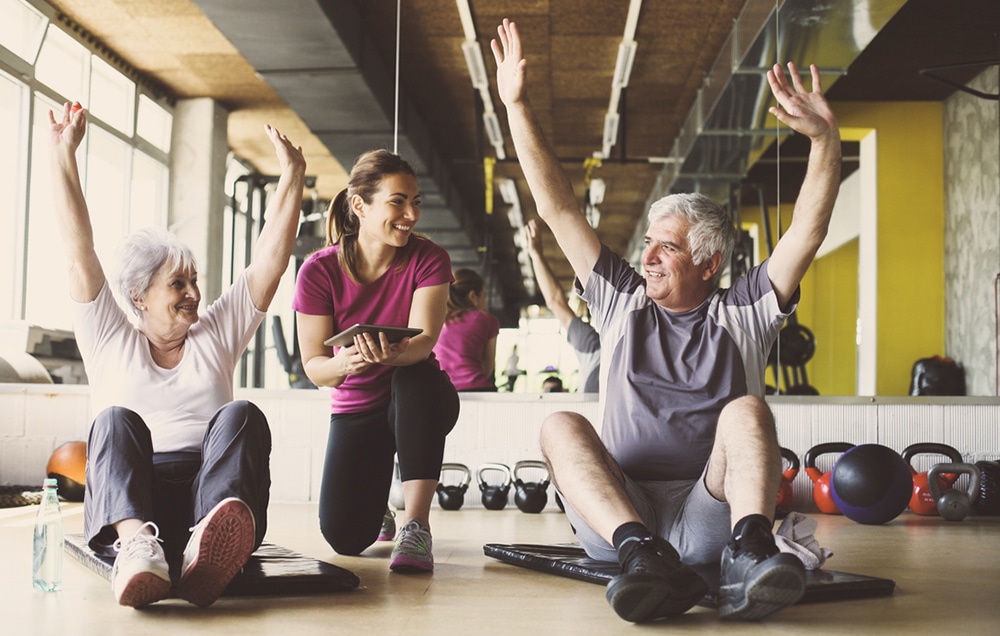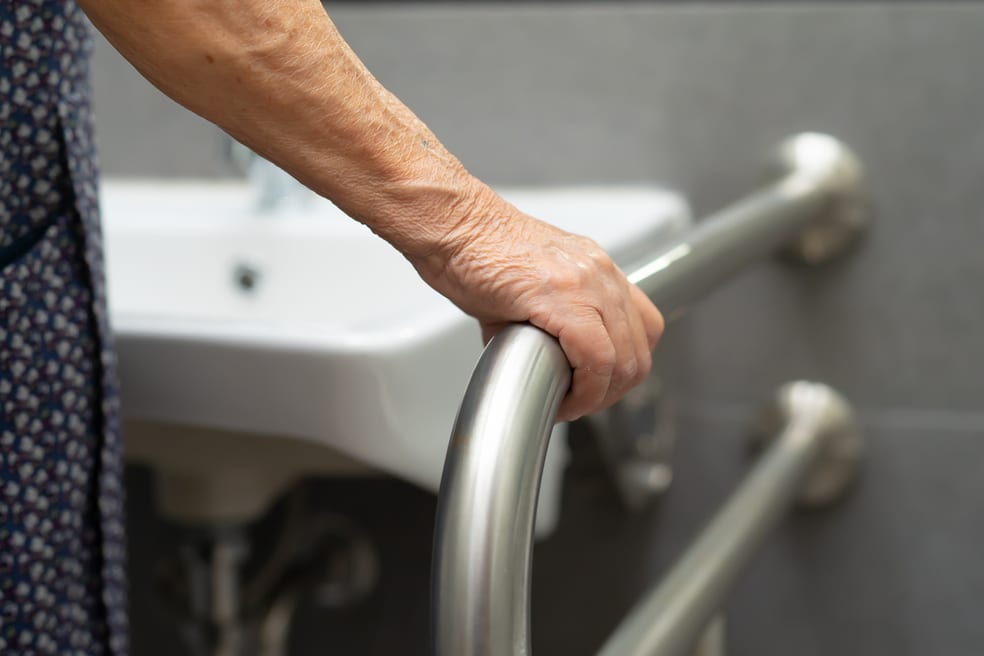Fall Prevention Tips for Older Adults
Every year millions of elderly Americans (those over the age of 65) fall. Data from the Centers for Disease Control and Prevention indicates as many as one in four elderly experience a fall each year. What’s more, only less than half will actually tell their doctor, especially if they believe the fall was not a severe event. Unfortunately, one out of every five falls will be a serious event resulting in broken bones, head injury, or death.
For seniors, the most serious consequence of a fall (short of death) is a fracture or break. The most common fractures include the hip, femur (thigh bone), pelvis, upper arms, and hands. Even those who are healthy and strong can experience an accidental fall, which leads to questions regarding why older adults are at increased risk for falls and what can be done to prevent falling...
What Causes Falls in Older Adults?
Falls are a leading cause of accidents and injury in adults over age 65. As we get older, normal functions of the aging process, such as eyesight and hearing changes, can make one more likely to fall. Illness and physical conditions that weaken the muscles and joints are additional factors that can contribute to decreasing strength and balance.
Vitamin deficiencies and medications for depression, sleep difficulties, high blood pressure, diabetes, and heart conditions can also lead to instability. Low lighting, throw rugs, and torn carpeting frequently lead to trip and fall incidents at home.
How Can You Prevent Falls?
Falls can be prevented. There are many simple things you can do to keep yourself or a senior loved one from experiencing injury due to a fall. First, talk to your doctor and ask them to evaluate your risk for falling. They can work with you to review your medications and see if any may contribute to sleepiness or dizziness. Depending on your specific medical needs, they may be able to provide alternate options or, at the very least, insight around how to maintain your prescription regimen and remain safe at home.
Add Strength and Balance Exercises to Your Routine

A significant factor behind senior falls is muscle weakness and reduced coordination. Adding low-impact exercises such as weights, Tai Chi, or yoga may help strengthen leg and core muscles to help improve your balance and overall strength. Not to mention, they make excellent additions to self-care and overall wellness plans.
Of course, you should talk with your doctor before starting any new eating or exercise regimen to ensure it’s safe for you.
Incorporate Vitamin D and Calcium into Your Diet
Vitamin D and calcium are essential to strong, healthy bones. Due to the natural aging process and changes in diet, many seniors do not get enough of either essential nutrient in their diets. Talk to your provider about whether supplements may help you reduce the risk of deficiencies and the onset of bone-related illnesses such as osteoporosis.
Have Your Vision and Hearing Checked
It is important to have your vision and hearing checked annually. If there have been changes to your prescription, be sure to update your glasses or hearing aids if needed. Make sure to carry your most up-to-date glasses with you to ensure accurate vision, especially during outdoor activities.
Make Sure Your Home is Safe

The overwhelming majority of senior falls occur at home, and far too often, seniors do not receive immediate assistance in the case of a fall. If you live at home, it is crucial to ensure your home is safe.
Ask a family member to help you install grab bars near the shower or toilet if you need help in that area. Also, be sure there are railings on any stairs and that your light fixtures have working bulbs. Finally, remove any tripping hazards such as torn carpets or throw rugs that could contribute to an accidental fall.
Remember it is OK to Get Older
Growing older does not mean you have to give up your favorite pastimes or hobbies. Instead, it may just mean doing them a bit differently. Talk to your doctor about safe ways to continue participating in your favorite athletic or social activities without putting yourself at risk of injury.
Perhaps also consider trying new things that may make more sense for your level of physical ability. You may find that you’re more open to trying new things as you age, and you may end up finding something you really love to do.
Coping and Treatment Options After A Fall
Despite proper fall prevention planning, sometimes falls still happen. If you or a loved one experiences a fall, it is essential to seek treatment to ensure your body receives everything it needs to heal properly.
If you can, begin at-home care such as:
- Resting and elevating the injury
- Drinking water
- Applying ice and heat
- Eating foods rich in protein and antioxidants to promote healing
- Taking an over-the-counter anti-inflammatory medication like ibuprofen for swelling (if medically acceptable based on your current prescriptions)
If you experience an injury that needs to be treated by a medical professional, visit our Express Care. Unlike heading to the ER, our Express Care will get you in and out quickly, and you’ll actually see an orthopaedic doctor while you’re here! Depending on your injury and medical needs, your doctor will work with you to develop a plan for treatment such as medications, therapy, or surgical intervention.
Request a Consultation with a OrthoUnited Doctor
To learn more about available treatment options, request a consultation with one of our skilled doctors. If you’ve recently experienced a fall, please call 911 or head to one of our Express Care locations immediately for medical attention.
Sources: CDC
